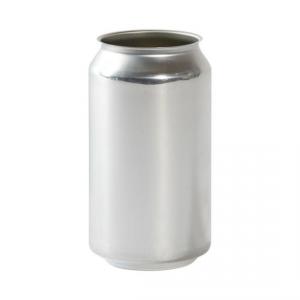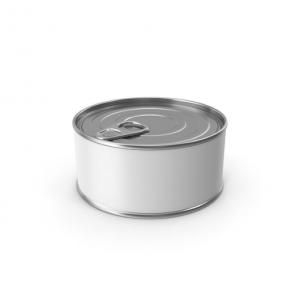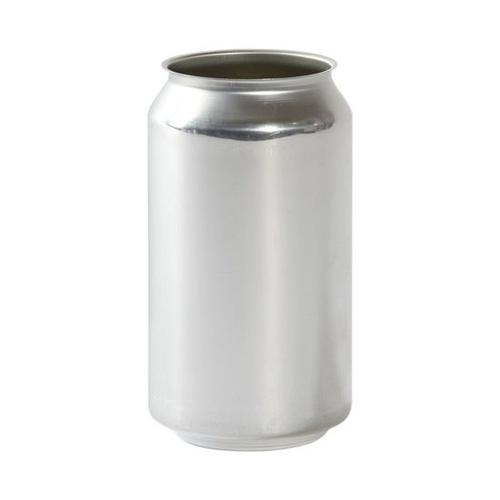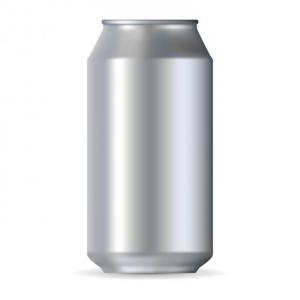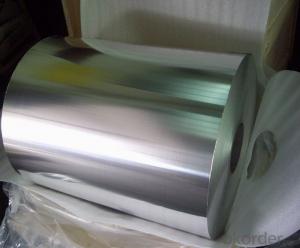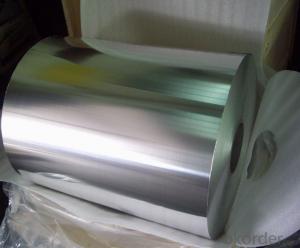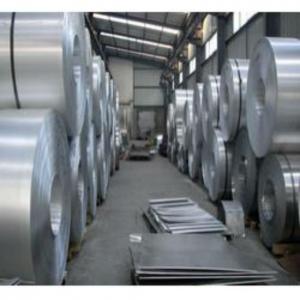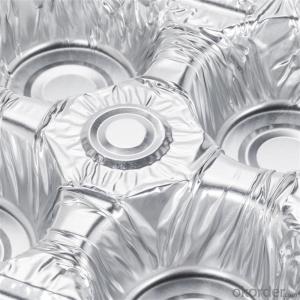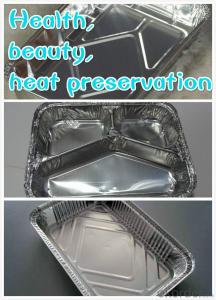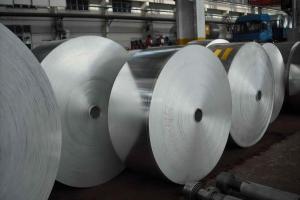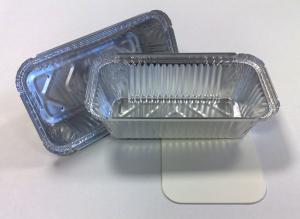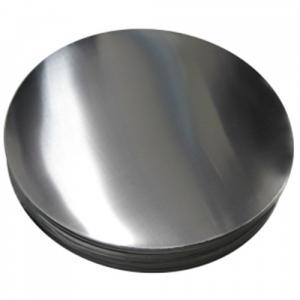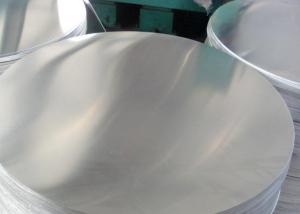Aluminium Can Bodystock for kinds of Food Can
- Loading Port:
- China main port
- Payment Terms:
- TT or LC
- Min Order Qty:
- 100000 pc
- Supply Capability:
- 5000000 pc/month
OKorder Service Pledge
OKorder Financial Service
You Might Also Like
Aluminum cans are a widely used packaging solution, particularly in the beverage and food industries. These cans are crafted from aluminum, a material known for its lightweight and corrosion-resistant properties. The use of aluminum ensures that the contents remain fresh and unspoiled, making it an ideal choice for preserving the quality of drinks and food. Aluminum cans have become an integral part of modern packaging due to their practicality and efficiency in both transportation and storage.
Advantages:
Recyclability: Aluminum cans can be recycled indefinitely without losing quality, significantly reducing environmental impact.
Lightweight: They are lighter than other packaging materials, reducing transportation costs and energy consumption.
Durability: Aluminum cans are resistant to damage during handling and transportation, ensuring the contents remain safe.
Thermal Conductivity: They allow beverages to chill quickly, providing convenience for consumers who prefer cold drinks.
Corrosion Resistance: Aluminum's natural corrosion resistance helps preserve the freshness and taste of the contents.
Branding and Marketing: The surface of aluminum cans is ideal for high-quality printing, enhancing product branding and consumer appeal.
Specification:
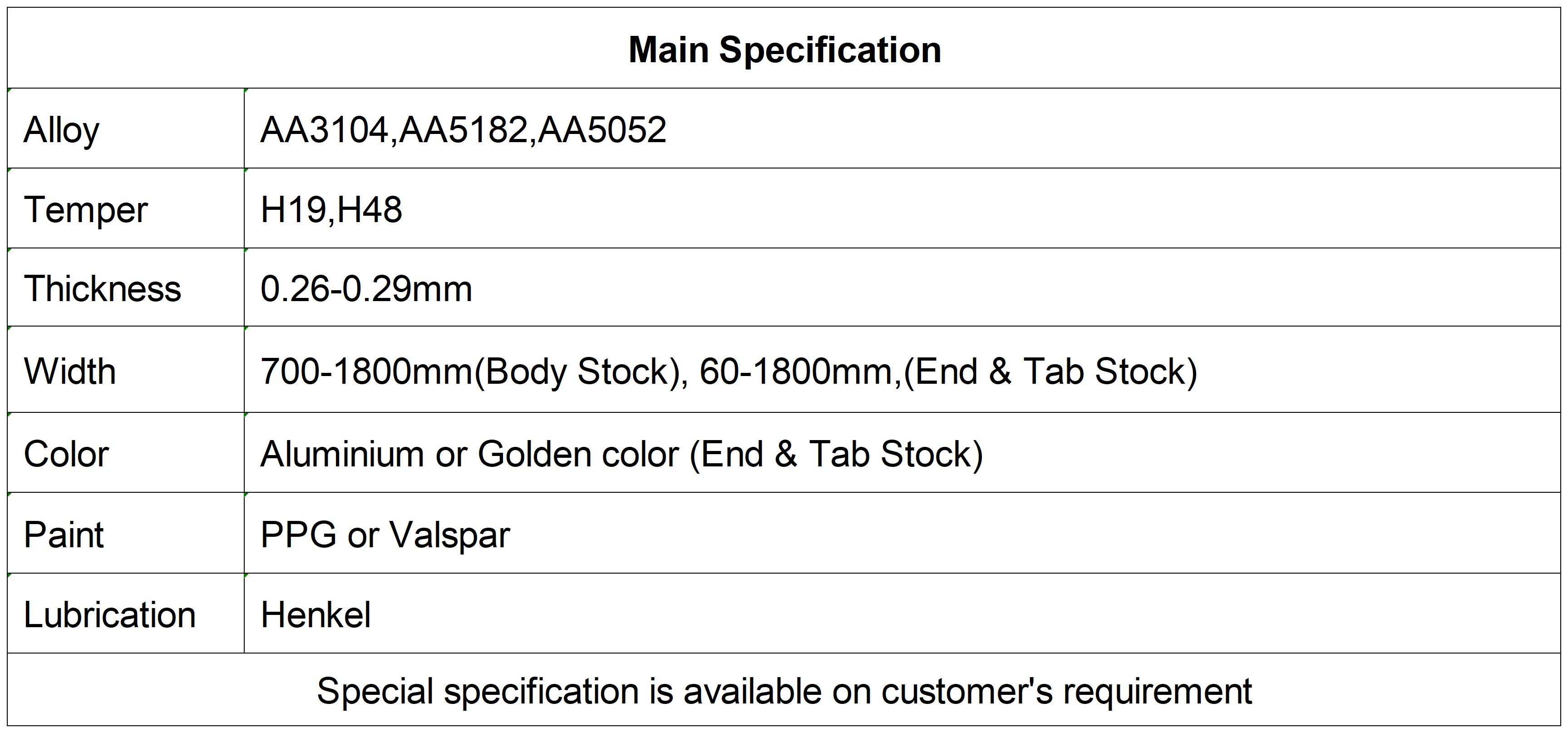
Images:
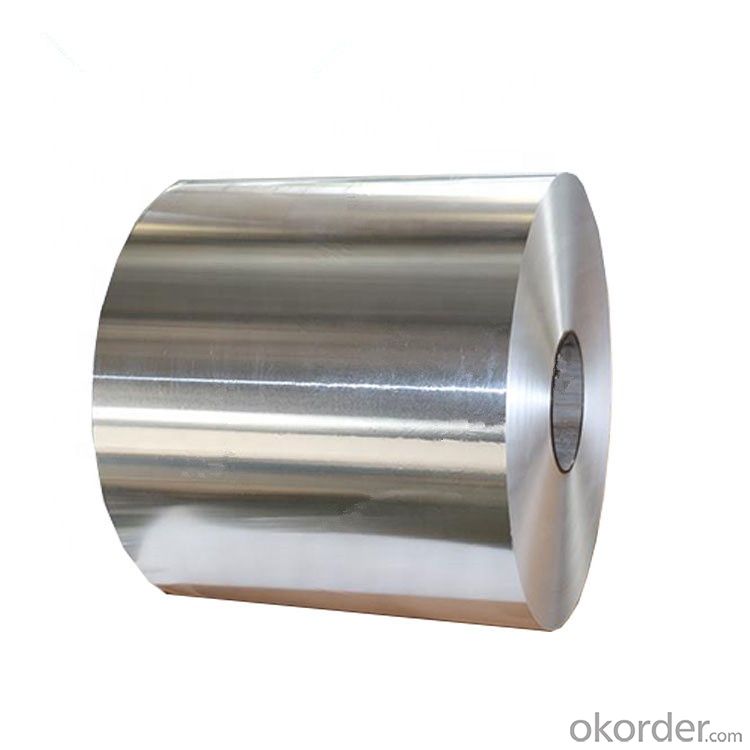
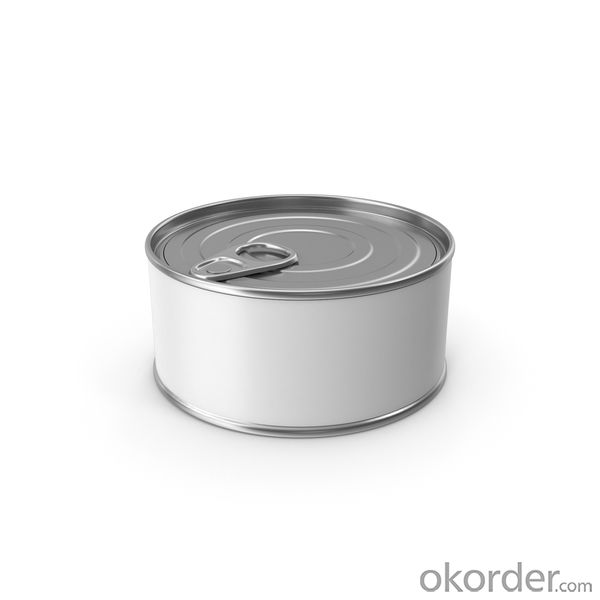
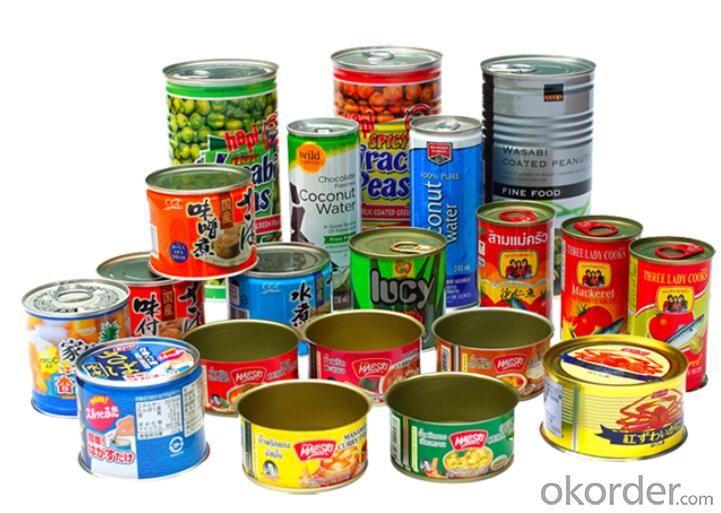
Professional Quality Control Team:
Inspect ingot before melting
Inspecting aluminium coil /foil stock before cold rolling
Inspecting finished goods before package
Inspecting package, loading before shipment
Certificates:
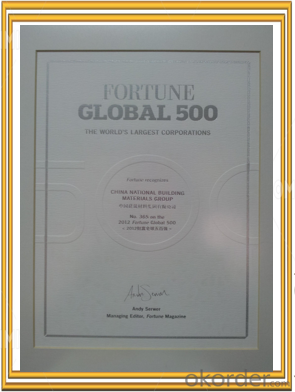
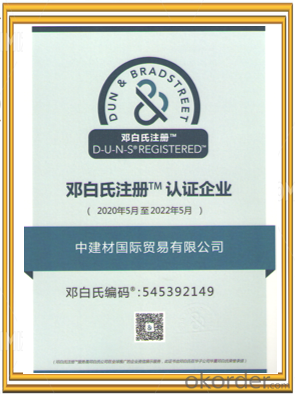
- Q: Is it safe and common to use aluminum for the production of containers for food and beverages?
- <p>Yes, aluminum is commonly used to make containers for food and beverages. It is lightweight, durable, and provides excellent resistance to corrosion. Aluminum cans are widely used for beverages like soda and beer, and aluminum foil is often used for food packaging. However, it's important to note that the interior of aluminum cans is usually lined with a protective coating to prevent direct contact with the food or drink, which can help to mitigate any potential health concerns related to aluminum exposure.</p>
- Q: This question asks about the environmental impact of aluminum foil, including its production, usage, and disposal.
- <p>Aluminum foil has a significant environmental impact. Its production requires large amounts of energy, contributing to greenhouse gas emissions. The mining of bauxite, the primary source of aluminum, can lead to deforestation and habitat destruction. Additionally, improper disposal of aluminum foil contributes to littering and can end up in landfills, where it takes centuries to decompose. However, aluminum is also highly recyclable, and recycling reduces energy consumption and emissions. Efforts to reduce aluminum foil usage and increase recycling are crucial for mitigating its environmental impact.</p>
- Q: Explain the impact of adding magnesium to aluminum alloys on their characteristics.
- <p>Adding magnesium to aluminum alloys significantly enhances their strength, especially in the form of heat-treatable alloys known as Al-Mg or 5000 series alloys. Magnesium increases the alloy's resistance to corrosion, improves its formability, and raises its mechanical strength. These alloys are often used in applications requiring high strength-to-weight ratios, such as in the aerospace and automotive industries. The addition of magnesium also improves the alloy's weldability and resistance to stress corrosion cracking. However, it's important to note that excessive magnesium can lead to reduced ductility and increased susceptibility to stress corrosion cracking, so the amount added must be carefully controlled.</p>
- Q: This question asks for the typical origins of aluminum in the environment.
- <p>Aluminum is the most abundant metal in the Earth's crust, and it is widely present in the environment. Common sources include: 1) Natural weathering of rocks and soil, which releases aluminum into the environment. 2) Industrial processes such as aluminum production, which can release aluminum into the air and water. 3) Food and water, where aluminum can be found naturally or as a result of contamination. 4) Household products like aluminum foil, cans, and cookware, which can contribute to aluminum exposure. 5) Medications and vaccines, which sometimes contain aluminum as an adjuvant. 6) Cosmetics and personal care products, which may contain aluminum compounds. These sources contribute to the overall aluminum exposure in the environment and to humans.</p>
- Q: Explain the impact of high-temperature cooking on aluminum cookware.
- <p>High-temperature cooking can have detrimental effects on aluminum cookware. When exposed to high heat, aluminum can react with acidic or alkaline foods, potentially causing the release of aluminum particles into the food. This can lead to a change in the taste and color of the food, and over time, it may also lead to the degradation of the cookware's surface, causing it to become discolored or pitted. Additionally, there are health concerns related to the ingestion of aluminum, although these are still a subject of debate among scientists. It's generally recommended to use aluminum cookware on low to medium heat to preserve both the quality of the food and the longevity of the cookware.</p>
- Q: This question asks about the energy consumption involved in the recycling process of aluminum.
- <p>Recycling aluminum requires significantly less energy compared to producing aluminum from raw materials. It takes about 5% of the energy needed to produce new aluminum from bauxite ore. This energy efficiency is due to the fact that recycling aluminum involves melting down the metal, which requires less energy than the extraction and refining processes involved in primary production. The exact amount of energy saved can vary depending on factors such as the purity of the recycled material and the efficiency of the recycling process, but overall, recycling aluminum is a much more energy-efficient method than mining and refining new aluminum.</p>
- Q: Describe the process of electrolysis used in aluminum production.
- <p>The process of electrolysis for aluminum production involves the Hall-H茅roult process, which is the primary method for extracting aluminum from its ore, bauxite. First, bauxite is refined to produce aluminum oxide (alumina). This alumina is then dissolved in a molten cryolite bath, which lowers the melting point and increases the electrical conductivity. Large amounts of electricity are passed through the bath, causing the alumina to decompose into aluminum metal and oxygen gas. The aluminum collects at the bottom of the cell and is periodically tapped off, while the oxygen is released into the atmosphere. This energy-intensive process is crucial for the aluminum industry, as it allows for the production of large quantities of aluminum, a key material in various industries.</p>
- Q: Is it possible to utilize aluminum in the construction of airplanes to enhance fuel efficiency?
- <p>Yes, using aluminum can make airplanes more fuel efficient. Aluminum is lightweight, which reduces the overall weight of the aircraft, leading to lower fuel consumption. Additionally, aluminum has good strength-to-weight ratio and is resistant to corrosion, making it a popular material in aircraft construction. However, it's important to note that the use of aluminum must be balanced with other materials to ensure structural integrity and safety.</p>
- Q: Is aluminum capable of functioning as a catalyst in chemical reactions?
- <p>Aluminum is not typically used as a catalyst in chemical reactions. Catalysts are substances that increase the rate of a chemical reaction without being consumed in the process. Aluminum, being a metal, does not have the properties necessary to act as a catalyst in most reactions. However, it can be used in certain reactions as a reducing agent or in the form of organoaluminum compounds, which may participate in catalytic processes, but these are not common applications.</p>
- Q: What are the methods to decrease the expenses associated with recycling aluminum?
- <p>Yes, there are several ways to reduce the cost of recycling aluminum. One effective method is to improve collection efficiency by consolidating recycling programs and using smart waste management systems. Another approach is to invest in advanced recycling technologies that can sort and process materials more efficiently. Additionally, increasing consumer awareness about the importance of recycling and encouraging participation can lead to higher volumes of recycled materials, which can lower per-unit processing costs. Lastly, government incentives and subsidies can help offset the costs of recycling operations, making it more economically viable.</p>
Send your message to us
Aluminium Can Bodystock for kinds of Food Can
- Loading Port:
- China main port
- Payment Terms:
- TT or LC
- Min Order Qty:
- 100000 pc
- Supply Capability:
- 5000000 pc/month
OKorder Service Pledge
OKorder Financial Service
Similar products
Hot products
Hot Searches
Related keywords
